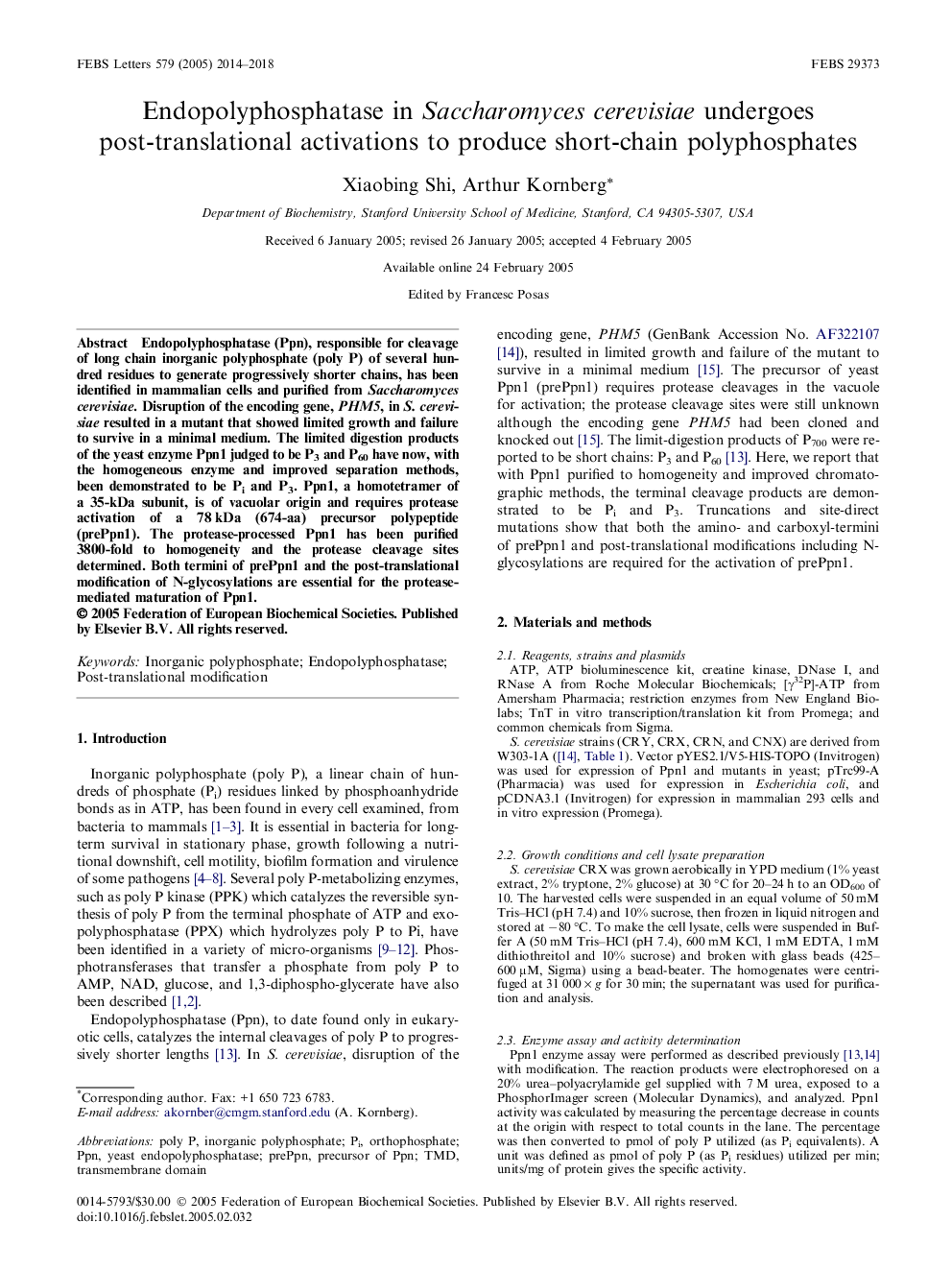| Article ID | Journal | Published Year | Pages | File Type |
|---|---|---|---|---|
| 2051740 | FEBS Letters | 2014 | 5 Pages |
Endopolyphosphatase (Ppn), responsible for cleavage of long chain inorganic polyphosphate (poly P) of several hundred residues to generate progressively shorter chains, has been identified in mammalian cells and purified from Saccharomyces cerevisiae. Disruption of the encoding gene, PHM5, in S. cerevisiae resulted in a mutant that showed limited growth and failure to survive in a minimal medium. The limited digestion products of the yeast enzyme Ppn1 judged to be P3 and P60 have now, with the homogeneous enzyme and improved separation methods, been demonstrated to be Pi and P3. Ppn1, a homotetramer of a 35-kDa subunit, is of vacuolar origin and requires protease activation of a 78 kDa (674-aa) precursor polypeptide (prePpn1). The protease-processed Ppn1 has been purified 3800-fold to homogeneity and the protease cleavage sites determined. Both termini of prePpn1 and the post-translational modification of N-glycosylations are essential for the protease-mediated maturation of Ppn1.
